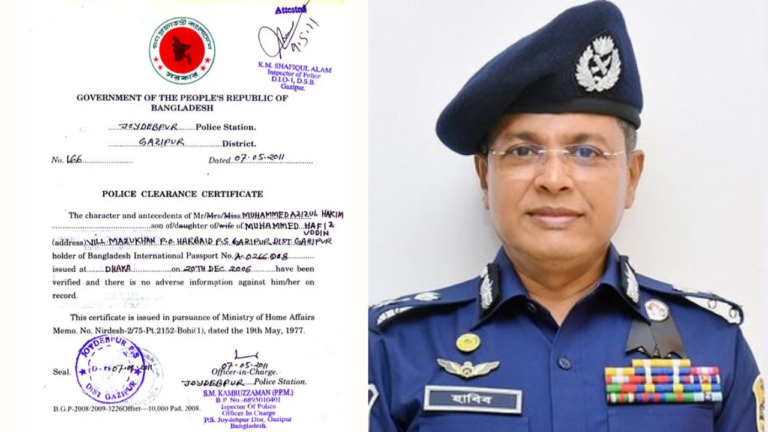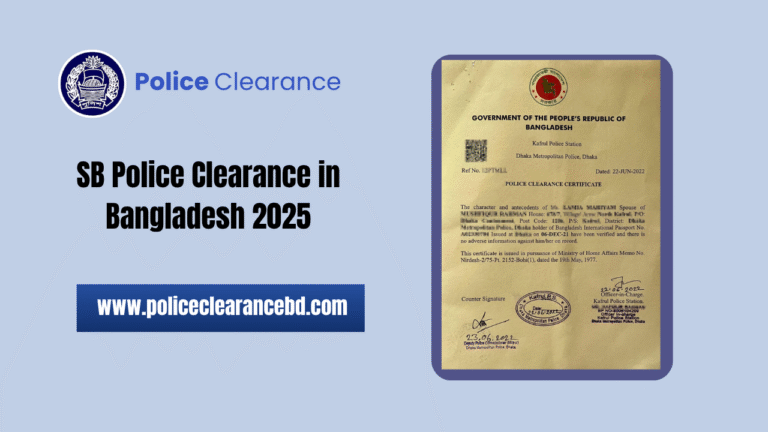No Political Background Check in Police Verification

No Political Background Check in Police Verification. Police Reform Commission has proposed major changes in the police verification process, including removing political background checks during job recruitment. To ensure that no deserving candidate is denied employment opportunities due to their political affiliation, this move is intended to create a more transparent, unbiased, and merit-based hiring system.
Police Verification and Political Background Checks
The proposal was announced by Safar Raj Hossain, the chief of the commission, during a meeting with Lt Gen (retd) Jahangir Alam Chowdhury, the Home Affairs Advisor. Traditionally, police verification for government, semi-government, and bank jobs involves questions about a candidate political identity and whether their family members are involved in politics. Discriminatory hiring practices rooted in the British colonial era result from these practices.
As Safar Raj pointed out, many qualified candidates have been unfairly denied jobs because their relatives are politically active but not affiliated with the ruling party. An unfair employment landscape has resulted as a result of this frustration among job seekers.
Why This Reform is Necessary
Criminal Background Checks to Continue
Political background checks will be abolished, but criminal background checks, national identity verification, and other essential security measures will remain. It will be the police responsibility to ensure that their verification processes do not cause undue hardship or delay for job candidates.
Reforms on Arrest and Detention
Among other concerns, the commission addressed laws that allow arrests without warrants and remands. Nevertheless, since these issues fall under the jurisdiction of the law ministry, the commission lacks the authority to make independent decisions. A joint secretary from the law ministry has been included in the commission to facilitate discussions.
A number of legal battles have been fought over this issue. Following a writ petition filed by Dr. Kamal Hossain on behalf of BLAST, the High Court emphasized the need for safeguards, including:
Although the government initially appealed against these directives, the Appellate Division upheld the High Court decision.
Addressing Corruption and Political Influence in Police
Corruption within the police force is another significant concern raised by the commission. Safar Raj believes reducing corruption would increase efficiency and public trust in law enforcement.
Recommendations Under Review
After starting its work on October 6, the Police Reform Commission is expected to submit its final report by December 31. It may be possible to implement some recommendations immediately, while others may require legislative amendments and additional funding.
The use of plainclothes officers in police operations is still under review. In spite of the fact that no formal recommendations have been made yet, the commission plans to address this issue in the near future.
Read Also: Police clearance
Conclusion
Police reforms will ensure fairness, transparency, and efficiency in law enforcement and recruitment. Bangladesh law enforcement system will become more trustworthy and professional if political background checks are eliminated, safeguards against wrongful arrests are strengthened, and corruption is curbed within the police force.















